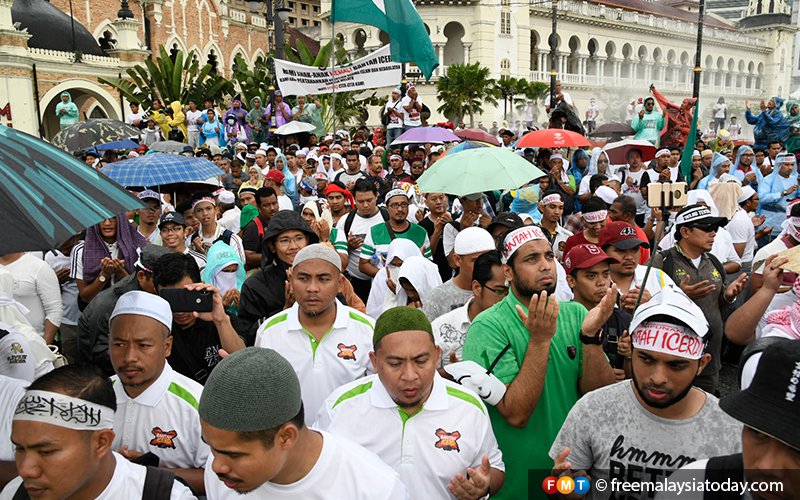When a Muslim scholar parades his irrelevance as the nation mourns

Despite warnings by police against provocations, these ulama are still free. Any other mortal would have been warned, hunted down and investigated.
Abdar Rahman Koya, Free Malaysia Today
For more than seven months now, Pakatan Harapan (PH) has been after its political enemies in the name of fighting corruption, the promise which propelled it to power. This has met with some success, with many Malaysians hoping for some sort of closure to what has been a tragic era of mismanagement of the country’s wealth and potential.
Immediately after taking over the government, PH set up its high-powered committee for reforms under the Council of Eminent Persons, which has since been disbanded.
While Malaysians still wait for some form of meaningful structural reforms, some things have gone from bad to worse.
The country’s Islamic institutions, for example, continue to be the playground of individuals who still find it easy to get away with acts that if committed by the common man would have seen him thrown in jail.
A recent example is the vibes coming out of people who are referred to as ulama and muftis in the wake of the death of Muhammad Adib Mohd Kassim.
Adib’s death is mourned by a great many Malaysians, quite a number of whom are angry over the needless tragedy. If it’s any comfort at all, the young fireman has not died unsung after getting himself burnt every now then on a monthly salary of a little over RM2,000.
It is to the credit of the vast majority of people in this country that things have remained calm despite the small but noisy pack of social media users who have tried to push a racial narrative on the tragedy.
A leader in the early years of Malaysia’s formation once remarked that if a fight between a Malay and a Chinese in a coffee shop does not spill out to the streets and descend into racial riots, then Malaysians will have matured and racial harmony will have been realised.
Adib, a Malay and a Muslim, may have succumbed to injuries he sustained at the hands of people who are not Malay and not Muslims. Decades ago, this was enough for a full-blown racial riot.
Thankfully, key leaders from both the government and the opposition have been quick to show maturity by asking for justice through civilised laws.
But do we see such a display of maturity among the so-called religious people, the very people Muslims are supposed to look up to for guidance, and from whom they can get clarification on the dos and don’ts of being a good Muslim?
The answer is a pathetic no if we are to consider the silence of some Muslim leaders, or to go by their posts on the social media written in the hope of rousing the vengeance of Muslims.
One of them has invoked the eye-for-an-eye principle as the correct Islamic response to Adib’s death.
Despite warnings by police against provocations, these ulama are still free. Any other mortal would have been warned, hunted down and investigated.
The other irony is that some of these same Muslim scholars were tasked with advising the government on reforming Islamic institutions in the country.
It was only recently that we heard yet another Arabic phrase uttered to showcase the positive role that Islamic principles can play in a multiracial country.
That phrase is “rahmatan lil alamin”, or mercy to the worlds, and its key proponent is Mujahid Yusof Rawa, the minister in charge of Islamic affairs.
But it is abundantly clear that the beauty of Islam is the last thing one would find among the salaried religious elites of this country, whose robes sweep the polished marble floors of their offices.
The Adib episode, like the three years of the 1MDB saga before the May election, is proof that those in charge of guiding the Muslims are the ones that need to be guided first.
It also spells the start of the Islamic bureaucracy’s move towards irrelevance when it comes to portraying Islam as mercy to the worlds.

